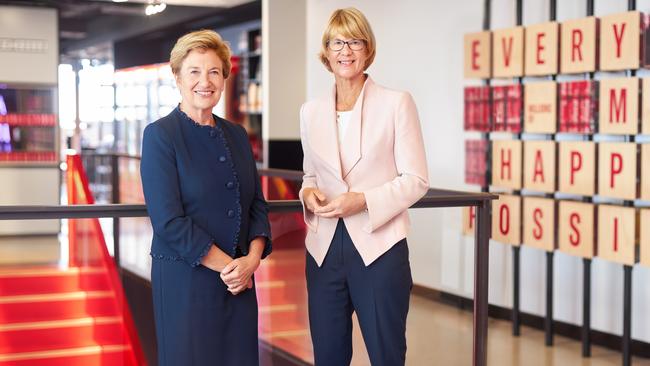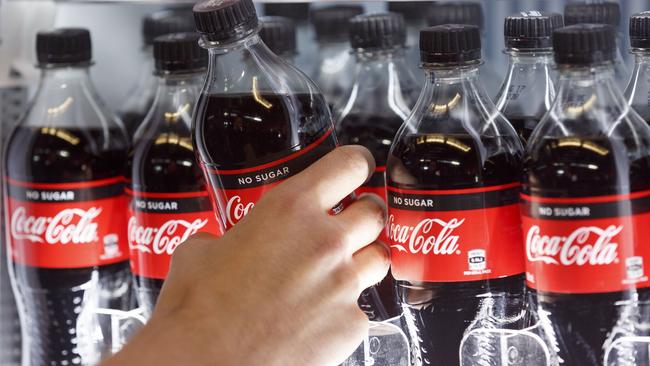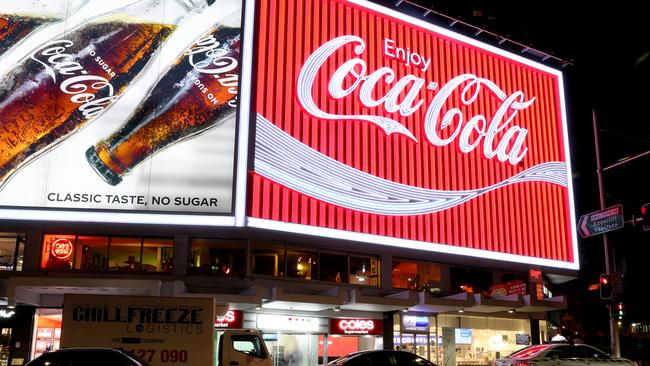Coke regains its fizz as takeover vote looms
On the eve of a historic takeover vote Coca-Cola Amatil chief executive Alison Watkins said Australians have gone back to trusted brands.

Australians have gone back to Coca-Cola drinks as they return to trusted brands in the wake of the pandemic, says Coca-Cola Amatil chief executive Alison Watkins.
Speaking ahead of Friday’s vote of CCA shareholders, which is expected to approve the $9.8bn takeover by London-based Coca-Cola European Partners, Ms Watkins said there had been a swing back to the Coke brands, particularly with the availability of Coke No Sugar.
She said the pandemic had also seen consumers move back to trusted brands.
“When I first came along seven years ago, sugar-based beverages such as Cokes and flavoured water were under a lot of pressure,” she said. “The categories were declining and we were seeing a lot of growth in areas like water, teas and kombuchas. But the consumer has now come back to sparkling beverages and to brand Coke which is our flagship brand.
“Some of the categories which were driving growth, like water and tea, have lost some of their momentum.”
Coke products now make up a fifth of all non-alcoholic drinks sold in Australia.
The company’s portfolio includes Coca-Cola, Coke No Sugar, Fanta, Sprite, Mother, Monster Energy, Mount Franklin Water, Minute Maid, Grinders Coffee and WA craft beer brand Feral Brewing.

It also distributes a range of other alcoholic drinks including Jim Beam, Suntory, Galliano and the Famous Grouse.
Watkins, who has run the company for the past seven years, said the takeover offer of $13.50 a share, which is being recommended by the board, reflected the recent turnaround of the company, which had annual sales of $5bn a year.
“We did an enormous amount of work to turn the performance of the business around,” she said.
“It was very satisfying to see the result of that evident in the 2019 results and we are now seeing it in the way the business is responding post-COVID. The hard yards were definitely vindicated and that is what has enabled us to get a great outcome for the independent shareholders.”
CCA is 30 per cent-owned by the Coca-Cola Company based in Atlanta, which has been a strong supporter of the bid.

The takeover will see a merger of the Australia-based business, which has Coca-Cola bottling operations in Australia, New Zealand, Indonesia, Fiji and Papua New Guinea, and the Coca Cola western European business (CCEP), creating an enterprise with a total turnover of more than $20bn, listed on the London Stock Exchange.
The takeover is expected to be finalised by May 11, and the company will be delisted from the ASX.
Ms Watkins would not say if she expected the new owners to sell off any of the CCA portfolio.
“CCEP are very focused on continuing the growth momentum we have got,” she said.
“They are buying us because our businesses are in good shape and growing.
“They recognise that every market is different and that customers have very local cultures which is important to understand. Our brands are something out customers are very attached to.”
Ms Watkins expected that CCEP would be “very supportive and good owners of the business”.
She said CCEP could bring its expertise in the areas of recycling, the use of plastics and low sugar drinks to the Australian business.
“CCEP are clear leaders in sustainability,” she said.
“They have made a lot of progress on sugar reduction and their approach to the use of plastics and recycling is world class.”
Ms Watkins rejected suggestions the foreign takeover of yet another Australian food and drinks company could make life tougher for the sector.
“We are a proudly Australian-based manufacturing business,” she said. “We manufacture locally, we employ locally and we source as much as we can locally.
“Regardless of our ownership structure, we are always going to be a local business.”
Ms Watkins, who is a member of the Reserve Bank board and the Business Council of Australia, and a former chief executive of Graincorp, would not say what she planned to do after the deal.



